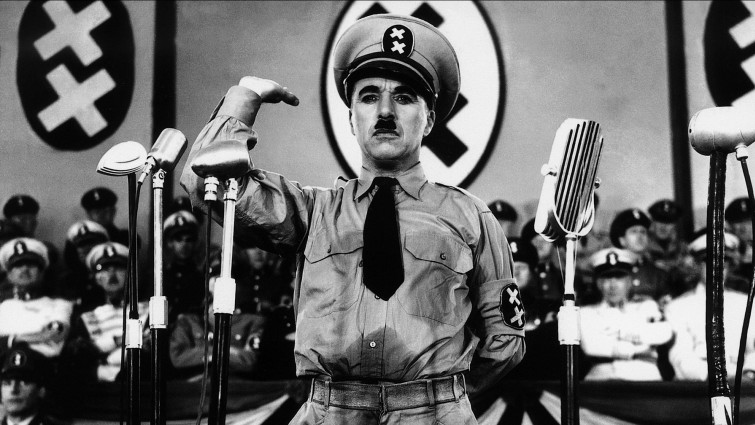

Member review

The Great Dictator
Chaplin's first 'talkie' was also the first major anti-fascist film of its era portrayed through slapstick and satire, with a touching...
Certificate
Duration120 mins
Review by
- Dominic, 17
- 47 reviews
Review by Dominic, 17
The first Chaplin talkie is a mixed affair. While the silent slapstick is as hilarious as ever, whenever the characters open their mouths things go downhill (the exception being Hinkel’s incomprehensible speeches). Despite this it manages to maintain a sharp satire of Hitler and dictatorship in general while giving numerous great laughs. The film takes place in the fictional country of Tolmenia (i.e. Germany) which after losing World War 1 is gradually taken over by the Hinkel party (i.e. Hitler and the Nazis). And they are the most incompetent government since the Clameron coalition. Chaplin plays the ‘great’ dictator Hinkel and uses every available aspect of this character to poke fun at Hitler and point out every stupidity of him and the Nazi party. Naturally, this gets a lot of jokes. Everything, from his angry speeches to his overly busy routine poke and prod away at Hitler until you wander how he ever came to power. His meeting with the dictator of Bacteria, his comic dance with the inflatable globe, his incompetent allies; everything is pushed to comic perfection. Except the script. It’s not that dialogue is bad or unfunny; it’s just that it doesn’t make any jokes. Rather, it tries to reinforce existing, and already excellent physical humour. Another gripe I have with this film is the final speech. Chaplin only made the film with sound so he could include a great speech at the end, attacking dictatorship and standing up for people’s rights. But it is just so unnecessary. The entire film attacks dictators and shows the plight of the people living under them through comedy, and having a separate, serious speech undermines that. It makes it seem like the comedy is worth less than it is, which is a gross error. Don’t get me wrong, it is a great speech but this film is not the place for it. I feel that if the film was silent then it could have only been improved. All the best gags would have been there and the less than perfect dialogue would not need to be there. And the film could have at a much better conclusion. As it is, it is still an excellent satire and parody of dictatorial regimes, but the main flaw this film has is that it could have been so much better.